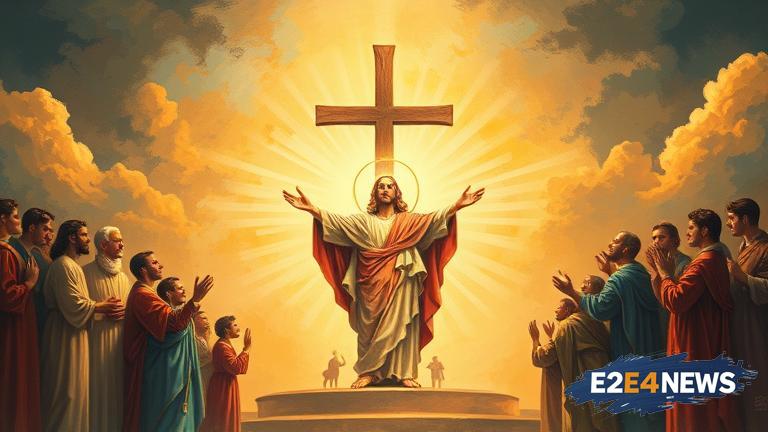The concept of a holy and universal apostolic church has been a cornerstone of Christian theology for centuries. However, the reality of a fragmented and divided Christian community has led to a re-examination of this ideal. Myles Werntz’s recent article highlights the challenges and opportunities in contesting the body of Christ. The search for unity is not a new phenomenon, but rather a recurring theme throughout Christian history. From the early days of the apostolic church to the present, Christians have grappled with the question of how to maintain unity in the face of diversity. The apostolic church, as described in the New Testament, was a unified body of believers who shared a common faith and mission. However, as Christianity spread and evolved, divisions and disagreements arose, leading to the formation of different denominations and traditions. Despite these differences, the pursuit of unity remains a fundamental aspect of Christian theology. The World Council of Churches and other ecumenical organizations have worked tirelessly to promote unity and cooperation among Christian denominations. Nevertheless, significant challenges remain, including theological disagreements, cultural differences, and historical conflicts. The Catholic Church, Eastern Orthodox Church, and Protestant denominations each have their own distinct traditions and practices, which can create barriers to unity. Furthermore, the rise of independent and non-denominational churches has added to the complexity of the Christian landscape. In recent years, there has been a growing recognition of the need for greater unity and cooperation among Christians. The Lausanne Movement and other evangelical organizations have emphasized the importance of unity in advancing the mission of the church. Additionally, the increasing globalization of Christianity has highlighted the need for greater cooperation and understanding among Christians from different cultural and theological backgrounds. The pursuit of unity is not only a theological imperative but also a practical necessity in a world where Christianity is increasingly diverse and global. As Christians seek to navigate the complexities of unity, they must also contend with the challenges of secularism, pluralism, and religious persecution. In many parts of the world, Christians face significant challenges and threats, which can make unity and cooperation even more difficult to achieve. Despite these challenges, the quest for a holy and universal apostolic church remains a vital and ongoing aspect of Christian theology and practice. By exploring the complexities of Christian unity and the pursuit of a unified apostolic church, Christians can gain a deeper understanding of the challenges and opportunities that lie ahead. Ultimately, the pursuit of unity requires a commitment to dialogue, cooperation, and mutual understanding among Christians from different backgrounds and traditions. As the church continues to evolve and grow, the quest for unity will remain a fundamental aspect of its mission and identity. The search for a holy and universal apostolic church is a reminder that Christianity is a global and diverse faith, which requires cooperation, understanding, and unity in order to fulfill its mission. By working together and embracing their diversity, Christians can build a more unified and effective witness to the world. The future of Christianity depends on the ability of its adherents to navigate the complexities of unity and to work towards a more cohesive and cooperative global community. In conclusion, the pursuit of a holy and universal apostolic church is a complex and ongoing challenge that requires the commitment and cooperation of Christians from all backgrounds and traditions.
